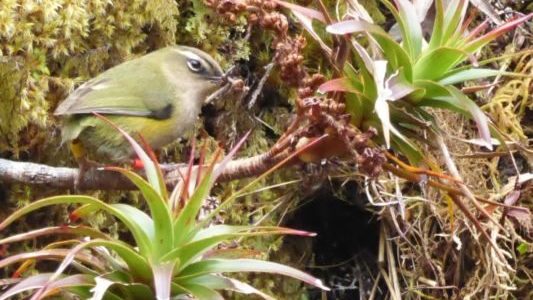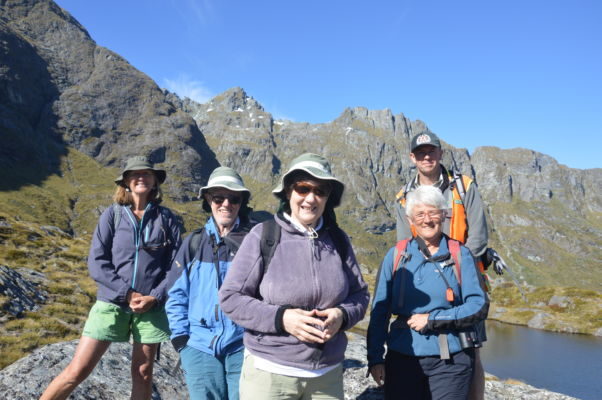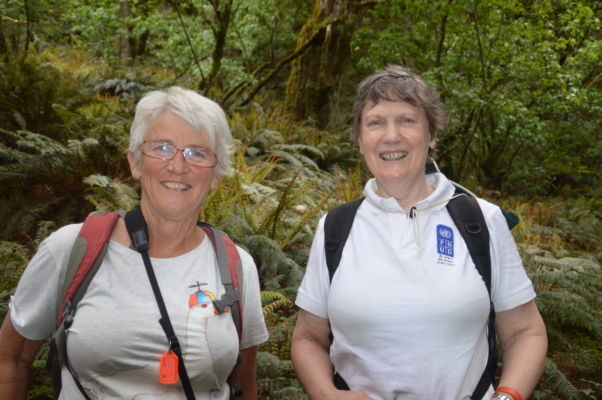Formed in 2013, the Routeburn Dart Wildlife Trust (RDWT) is inspired by a vision of being predator free “from Glenorchy to the sea,” says trustee Amanda Hasselman. Working in collaboration with the Department of Conservation and the Hollyford Trust, with substantial sponsorship from Air New Zealand, the Trust aims to bring back the birdsong to the Routeburn and Dart valleys and create a predator free corridor from Glenorchy (at the head of Lake Wakatipu) to Martins Bay (northern Fiordland).

“We want to be deafened by the dawn chorus,” says Amanda.
The Trust is made up of film-makers, tourism operators, farmers, other local business-people and conservation-minded locals, brought together initially by local DOC representatives Greg Lind and John Roberts. Having secured a conservation partnership with Air New Zealand to upgrade the trapping network on the Routeburn – one of New Zealand’s iconic ‘Great Walks’ – they wanted to ensure that the work done through Air New Zealand’s sponsorship was backed up in the long term, by a sustainable, ongoing fund to continue and expand predator control in perpetuity.

More predator control means greater birdlife in an area already visited by large numbers of New Zealand and overseas travellers.
“It’s about improving the experience for everyone,” Amanda explains, “so we can encourage more sponsorship from businesses who showcase the area to their clients and from kiwi and overseas visitors.”
The cooperative conservation venture has attracted some top level support with former Prime Minister (and UN leadership candidate) Helen Clark agreeing to be Patron of the RDWT. Clark had previously provided useful information about the area’s World Heritage classification for the ‘Stop the Tunnel’ campaign in Glenorchy.
“We still had her email address and she was the ideal candidate for Patron,” says Amanda, “We didn’t hear for a long time but eventually she replied and said ‘yes’!”
Helen Clark visited in January of this year.
“She had a ‘tiki tour’ to see what the Trust was doing and get an understanding of the area. She really appreciates the intrinsic values of the New Zealand back country,” Amanda says “and completely supported the Trust’s work.”
The news just keeps getting better for the Routeburn Dart Wildlife Trust as Air NZ has just funded a massive extension of the trapping network on the Hollyford Face of the Routeburn Track The entire Routeburn Track is now trapped which is great news for local birdlife, particularly alpine rock wrens.
There are currently 1007 traps in the Mt Aspiring area covered by RDWT. On the Mt Aspiring side, DOC workers clear the traps, while contractors are employed to clear the Te Anau ones. The traps are baited with eggs and checked monthly over summer. Tracking tunnels are also checked regularly to monitor the presence or absence of rats, mice and stoats.

“Air New Zealand has contributed the capital funding,” says Amanda, “but the Trust will take over the responsibility for long term management.” The Trust also supports Project Rock Wren which has extended the trapping network into the alpine areas of the Routeburn to improve the breeding success of rock wren. A similar regime in the Gertrude Valley has improved nesting success from 14% to 86%.
The Routeburn Dart Wildlife Trust is a great example of how DOC, conservation organisations, corporate sponsors and local business people can work together to the benefit of both wildlife and regional tourism. But in the Routeburn area, the independent initiatives go back a little further.
Evan Smith is warden of the McKenzie Hut on the Routeburn Track and for the last 4-5 years he has been telling trampers the story of why predator control is necessary and collecting their donations towards the work. Evan’s initiative raises about $20,000 per year which he has used to put traps every 100m on the Fiordland side of the Routeburn. That money is now going towards the RDWT’s work.
“Stoats and rats are the biggest problem,” says Amanda. “They need a huge network of traps.”
Building on Evan’s initiative, the Trust is looking at the opportunity to tell a consistent story along the Routeburn, working with DOC to revamp the story told at each hut about the issues facing back country biodiversity.
Rock wren and mohua are two key species at risk in the area which the trapping programme is helping but any reduction in predators benefits all species. Genesis Energy’s whio/blue duck programme has also had a very successful release of whio ducklings in the Rockburn and Routeburn area in the summer of 2015 – another example of a corporate sponsor working with New Zealand’s conservation community.
“Braided river species are also under threat on the Dart and Rees Rivers,” says Amanda and the Trust hopes to extend their work to support predator control in those areas in the future. Kaka are also on the Trust’s long-term radar for monitoring and help.
The work of the RDWT is one piece in a much bigger picture of predator free New Zealand. “But the pieces of the puzzle will gradually come together,” says Amanda.
Predator Free – Glenorchy to the Sea…
Watch this space.

